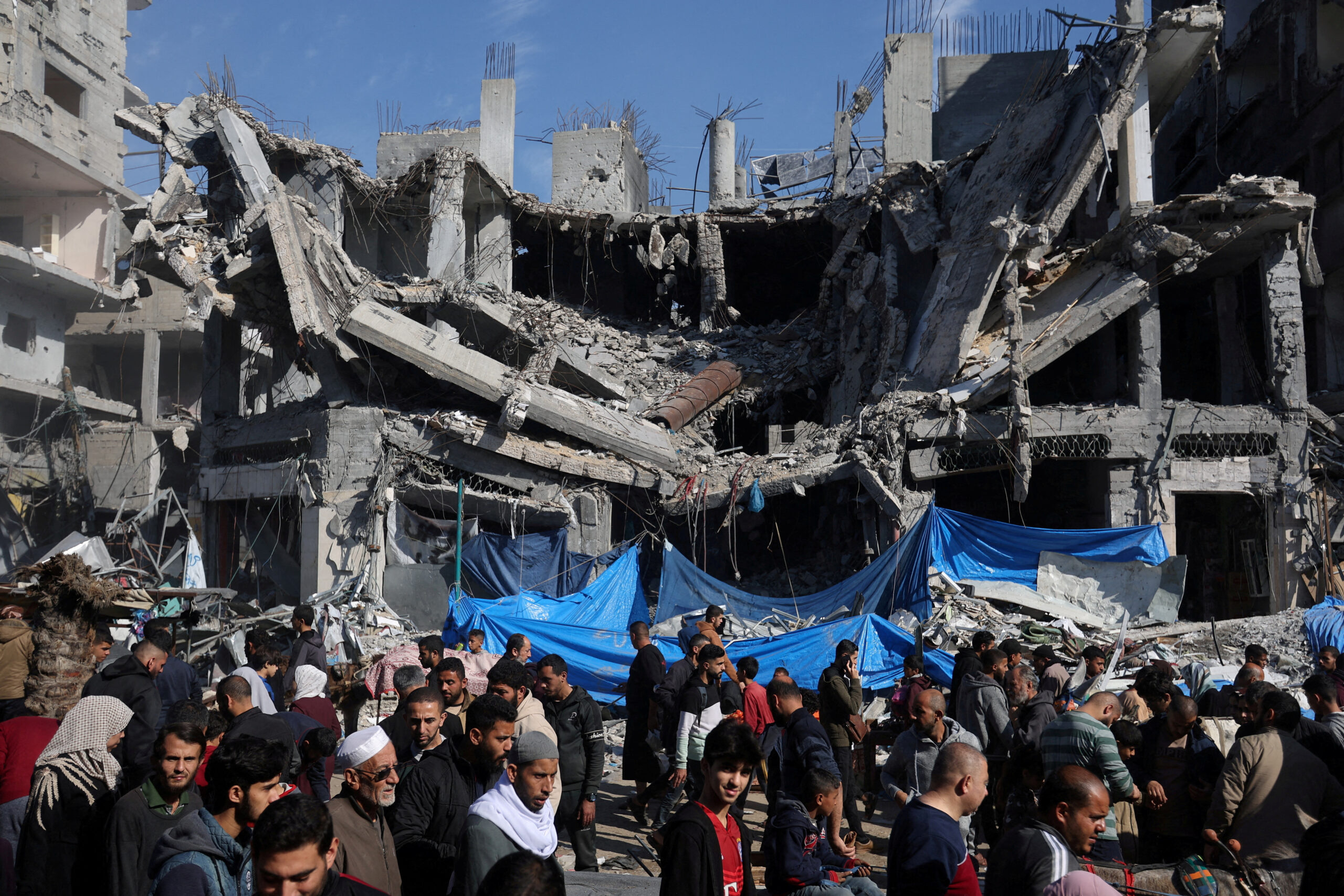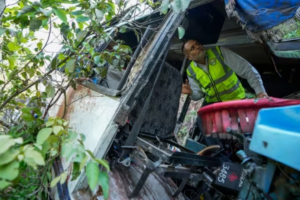Israel intensified its bombardment of Gaza overnight and into December 17, killing at least forty people, according to Palestinians. His came after Israeli Prime Minister Benjamin Netanyahu stated that Hamas must be severely pressured militarily to secure the release of the hostages.
According to militants and locals, there was intense fighting throughout the entire coastal enclave during the Israeli attacks. Communications were cut off for a fourth day, making it difficult to get medical assistance to the injured.
The Palestinian Red Crescent stated on X that “the communication blackout in #Gaza is the longest since the start of the Israeli escalation,” adding that shelling had also hindered its teams.
A source with knowledge of the situation said that Israel’s spy chief met with Qatar’s prime minister on December 15, who facilitated earlier hostage releases in exchange for a week-long ceasefire and the release of Palestinian prisoners.
However, as Israel carries on its full-scale assault of Gaza in retaliation, the militants have declared that they will not talk about releasing any more of the prisoners taken during their attack on southern Israel on October 7.
There was no indication that the violence would stop. Twenty-four people were killed, and numerous others were injured in Israeli missile strikes on the Shehab family’s home in the Jabalia refugee camp in northern Gaza, according to the director of the health ministry, who was quoted by Hamas’ Aqsa radio.
Health officials were not available for immediate comment. However, a medic said dozens of people had been killed or wounded in the Shehab family home and others nearby that were also hit. “Jabalia suffered tank, air and naval bombardment overnight. It has been suffering a brutal war for days. People are dying in the streets, and we can’t get to them,” he said by telephone, using an e-SIM that could connect to outside networks and declining to give a name, fearing Israeli reprisal.
Medical personnel reported that at least four Palestinians had died as a result of an Israeli air strike in Rafah, south of Gaza, and that twelve Palestinians had died and numerous others had been wounded in Deir al-Balah, in central Gaza.
Operationally, Israel claimed to have targeted “terrorist” targets. Palestinian health officials in Gaza estimate that since October 7, when Israel claims Hamas militants killed 1,200 people and took 240 hostages in a surprise raid, some 19,000 Palestinians have died, and thousands more have been buried under the debris as a result of Israeli airstrikes.
Israeli Loses
Since tanks and infantry started to advance into Gaza’s cities and refugee camps on October 27, 121 soldiers have lost their lives, according to a statement released by Israel’s military on December 17.
According to medical professionals, Israeli forces launched fresh airstrikes on a school on December 17 and shelled the courtyard of the city’s Nasser hospital and its environs.
In an airstrike on Khan Younis, the Israeli military claimed to have killed seven “terrorists” and discovered three tunnel shafts and parts for rocket manufacturing close to a school that was being used as a shelter. Additionally, it claimed to have taken control of the central Bani Suheila Square and attacked the Hamas commander’s office in the area.
Netanyahu promises to battle to the finish.
On December 16, Mr. Netanyahu declared that the conflict in Gaza was vital and that it had to be waged to the end, with the enclave being under Israeli security supervision and demilitarized.
“The guidance I am providing the negotiation team is based on this pressure, without which we have nothing,” he said at a press conference, evading a question about the meeting between Sheikh Mohammed bin Abdulrahman Al Thani and his spy chief David Barnea in Europe.
Advertisement




